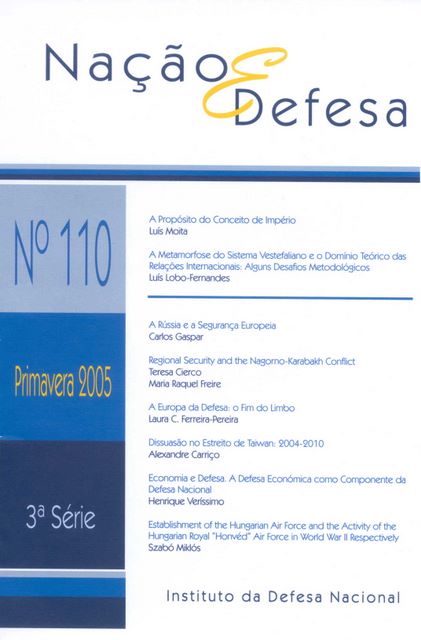Regional Security and the Nagorno-Karabakh Conflict
Resumo
Raging for more than a decade, the conflict between Armenia and Azerbaijan over the Nagorno-Karabakh enclave has been affecting the security and stability of the region. Rooted in ethnic, political and economic aspects, the distanced parties assumptions and intractable positions have rendered difficult the finding of a political solution. The combination of an enduring conflicting situation with massive population movements, economic imbalances, social difficulties and authoritarian practices constitute a major challenge to the region’s security. Allied to the competing interests of outside powers, including Iran, Turkey, Russia and the United States, the situation remains highly volatile. In this context of tension and interrelation of challenges and risks, the conjugation of conflicting interests and demands has rendered complex the achievement of a political agreement. This, together with the human and material implications of the conflict have been addressed particularly by the mediating efforts of the Organisation for Security and Cooperation in Europe (OSCE) Minsk Group and by the activities of the United Nations High Commissioner for Refugees (UNHCR). In the face of a problematic political, socio-economic and humanitarian situation, which have been the main possibilities and limitations of these international efforts? To what extent might the conjugation of internal and external actors promote regional security and stability, contributing to the political settlement of the frozen Karabakh conflict? And how does the regional context of instability affects the negotiations process and the rendering operational of initiatives promoted by these international organisations? In searching answers to these questions, this article aims at understanding the international efforts towards the finding of a political agreement to the agorno-Karabakh conflict, as a fundamental aspect for the promotion of stability and good governance in the Caucasus, questioning means and procedures, clarifying advances and failures, and suggesting possible alternatives.





